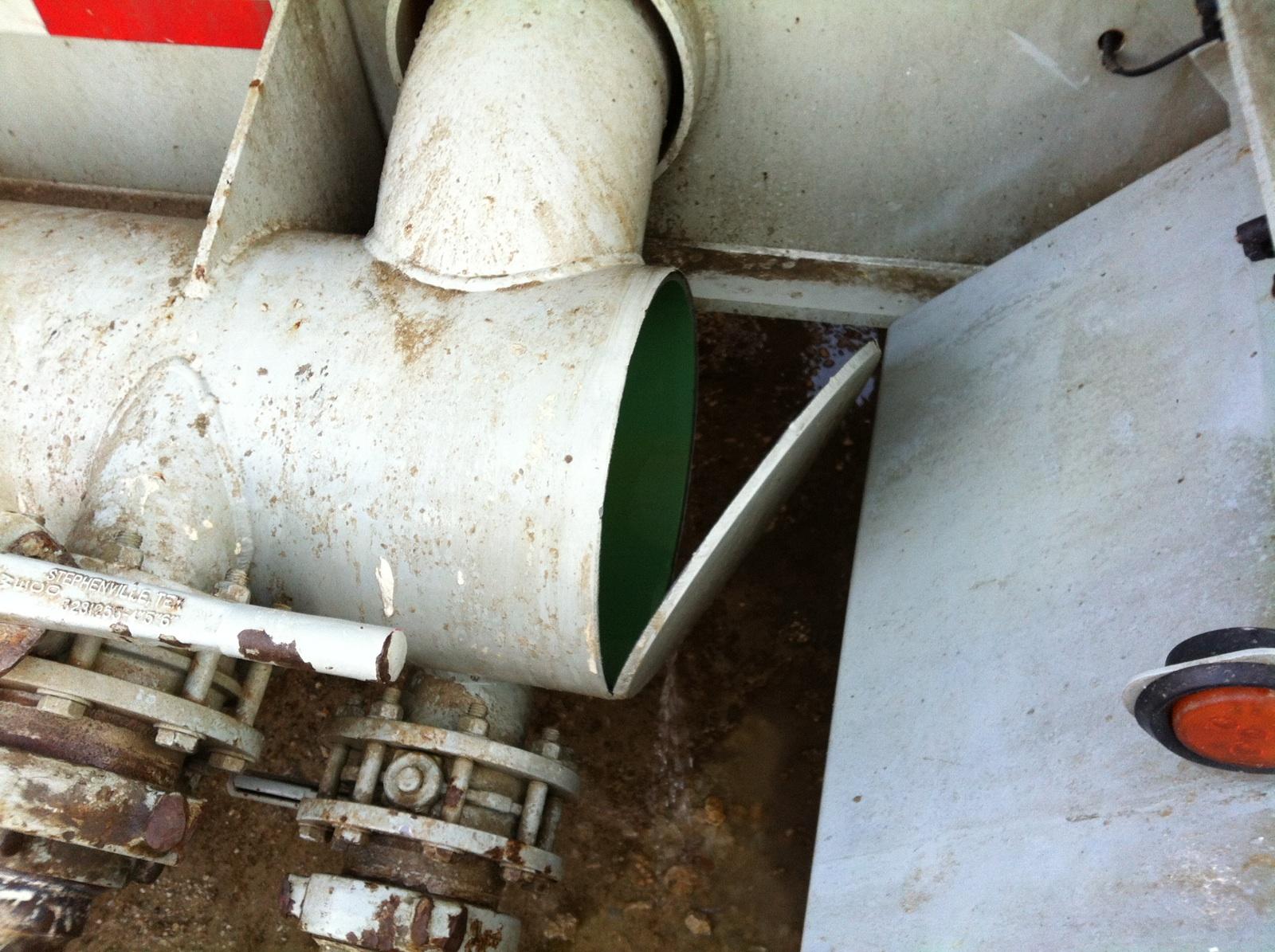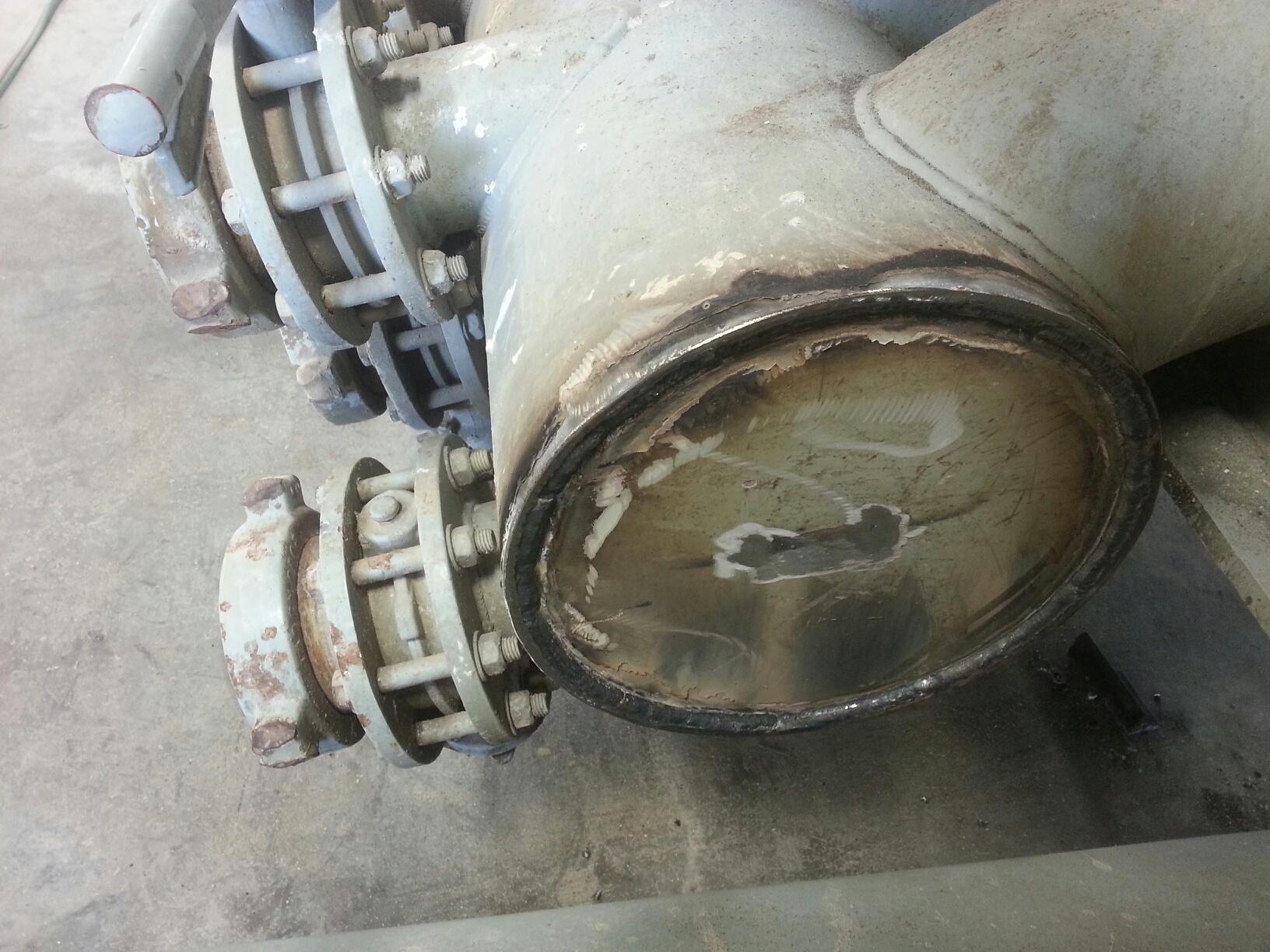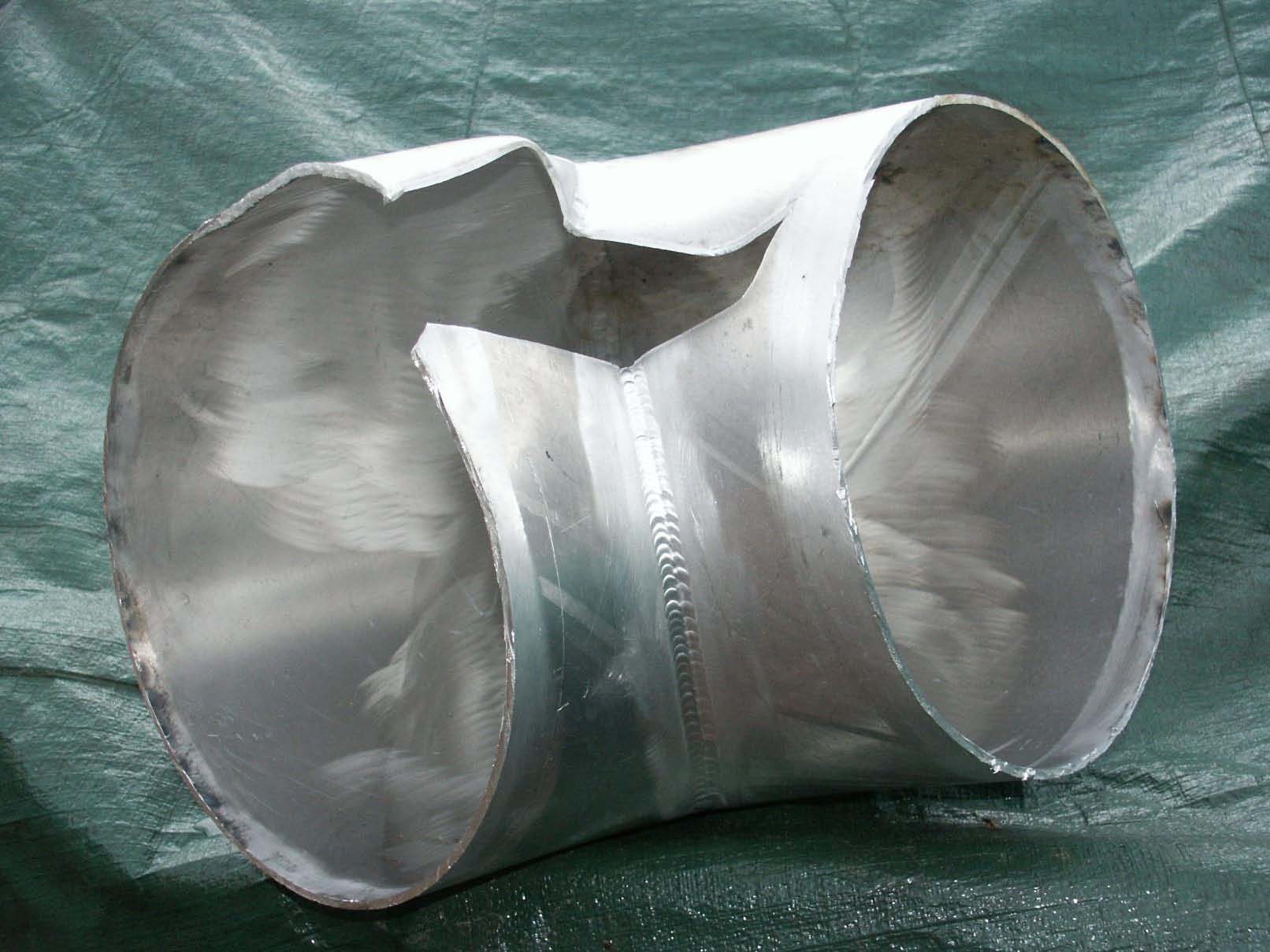Especially if the book doesn't have pictures.

Let's see, a 14 inch pipe operating at 150 psi, ignoring hammer, surges, etc., the weld is only holding back a total of about 24 000 pounds of force. Each inch of weld length has to resist about 550 pounds of force which doesn't sound like that much, but again we are ignoring fatigue, surges, hammer, thermal cycling, influence of the stress intensifiers in the unfused root (it is a partial joint penetration groove weld with a reinforcing fillet, right?), cevice corrosion, etc. Depending on the applicable code, the allowable stress will differ and the design parameters will differ, but who needs to bother with all that gobbly gook.
If the initial factory weld lasted a year, Tommy's weld should last longer yet! The fault and liability lies with the Owner should anything go boom in the night. That is until the Owner's insurance company looks to cut their losses and come hunting for Tommy. It does not even have to be Tommy's weld that initiates the "big bang." Something totally unrelated could initiate the failure, but Tommy will become one of the defendents in the case. Don't misunderstand my position. I applaud anyone that is willing to do a job and take risk as well as responsibility, but I do want welders to understand what those risks are.
It’s clear you have plenty of experience to go with your welding skills. I always said there are two ways of learning. One, and by far the most popular, is by attending the "School of Hard Knocks," the second and not nearly as popular is attending a school or an apprenticeship where people with more experience and know how to read can transfer a lifetime of experience to a student in a matter of weeks.
The best education is a combination of classroom training and hands-on experience. Few people are fortunate enough to have both, but those that do usually excel at their profession.
Can you imagine going to a surgeon that learned his trade by trial and error? “I know the liver is here somewhere! If it isn't on the left side, it must be on the right side. Maybe it is up a little higher. What's this slippery little devil? Anyone know what this thing does? It can't be that hard to transplant a liver, I saw them do this operation on U-tube last night!”
Al











